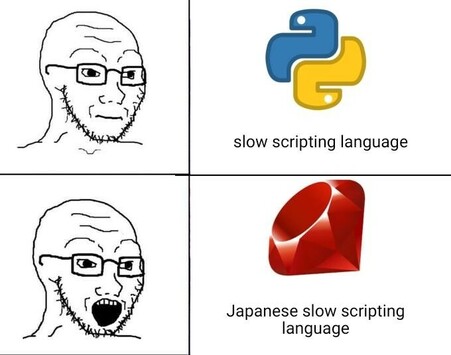
https://www.youtube.com/playlist?list=PLzlHQaNpSPoWYLVZy6K36wNOK73FHm4Zm (this one was made by the author of Quake 4 Mods for Dummies)
https://www.youtube.com/playlist?list=PLzlHQaNpSPoWgYvINqDSsrepL_-Rq6eya
https://www.youtube.com/watch?v=DGdv6a505qk
But most of the troonslop "retro" game devs are using Unity with faux PS1 graphics that struggle to run on a C2D.
@PurpCat Come to think of it why don't devs just build on the FOSS id tech engines in this day and age? There should be plenty of docs and support by now and it runs everywhere without the bloat of stuff like Unity, UE, etc. (most of which is completely unneeded for smaller projects)
Even though the game I'm working on is not finished, here are things that I am aiming to do better for my next project:
* Actually plan out the basic structure of the code before writing: This may come to a shock to you, but I only plan the game design and I write the code on the fly without planning out the code structure before writing it. Though I forgot how to drawl UML diagrams.
* Use object-oriented state machines: I have been putting off doing this for YEARS, despite knowing the advantages OO state machines have over enums and switch statements. I plan to at least use this for game modes because using traditional state machines for those creates an unorganized mess. OO state machines also seem to make code more reusable which is a plus.
* Put animations into their own objects: It should make it easier to organize them that way, especially when some animations are only played once while others are looped. It's also something that I have been putting off for years.
* Write my own timer class: SFML's clock class has no method to pause the timer. Only restarting the timer entirely, which means that it's still going even if the game is paused. I should write my own universal clock class to accommodate for that. The only reason why I haven't done that now is because not many things in my game use a timer and if they do, it doesn't really break the experience that much if pausing somehow interrupts them.
* Implement better RNG: I've noticed that C and C++s built-in random functions work differently than what I'm used to. I think in higher-level languages like C#, Java, and Python, the call to the standard random function/method increments the seed for the next call, while in C and C++ it just uses the current time as the seed, so if multiple calls are made in the same millisecond, they will give the same results. My game uses custom RNG for level generation, but enemy AI still uses rand/srand.
As of today you can now register PKT Domains, and when you do, they become a subdomain of every participating PKT "infrastructure domain".
See: https://cjd.pkt.wiki for an example.
https://thegoodwork.substack.com/p/pkt-dns-is-here
Read More: https://thefreethoughtproject.com/government-surveillance/israeli-spyware-firm-nso-group-found-liable-for-hacks-of-whatsapp-users
#TheFreeThoughtProject
- Sex
- Male
- Primary OS
- Linux Mint
- Programming Languages
- C/++/#, Python, Java, JavaScript, PHP, SQL, Assembly
- Personal website
- https://xianc78.codeberg.page/







